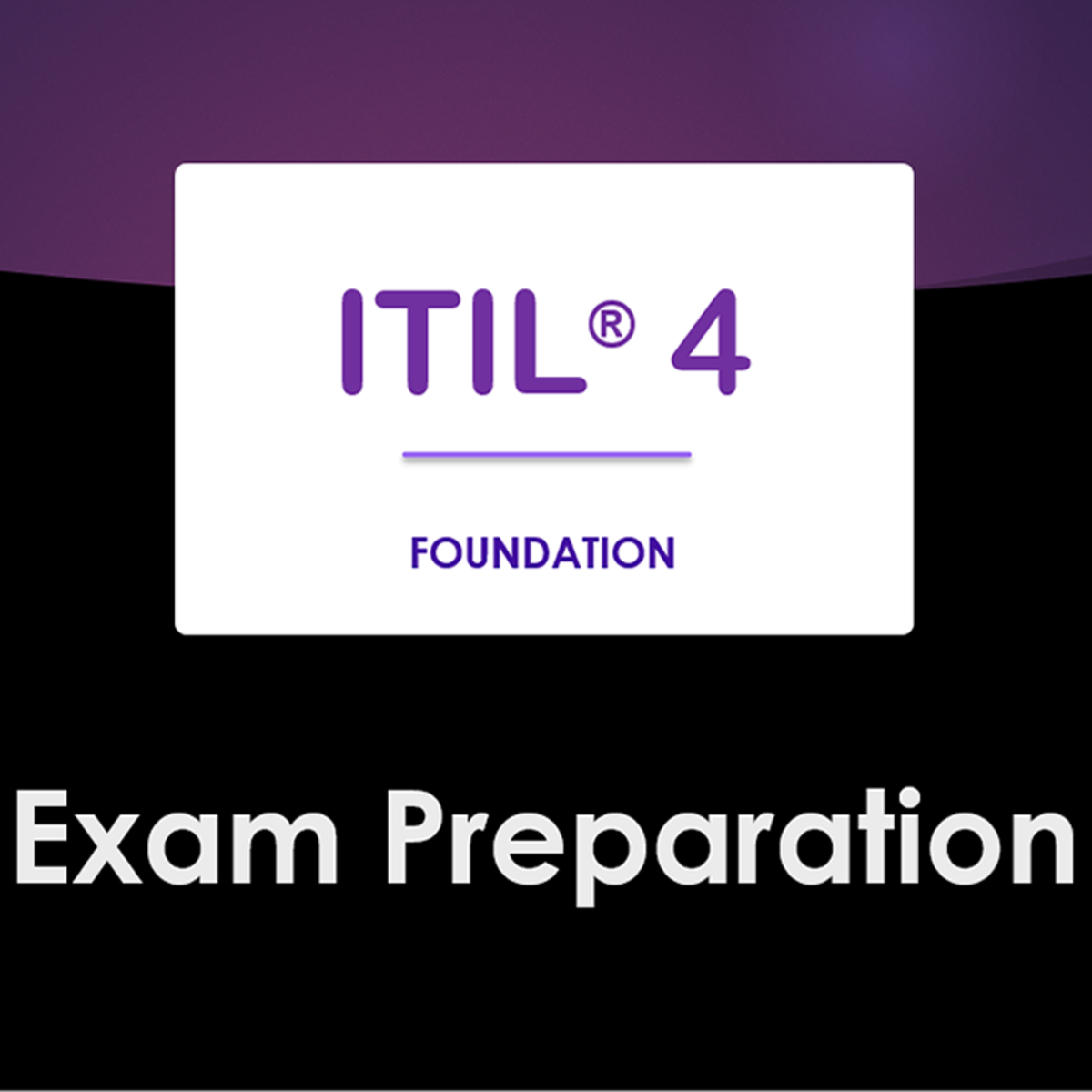IT Operations Manager
A Comprehensive Guide to the IT Operations Manager Career
An IT Operations Manager plays a vital role in the technological heartbeat of any organization. At a high level, this individual is responsible for ensuring that all IT systems, services, and infrastructure function reliably, securely, and efficiently, directly supporting the company's overarching goals. This means they oversee the daily workings of the IT department, from managing networks and servers to implementing new technologies and ensuring data security.
Working as an IT Operations Manager can be an engaging and exciting career path. One thrilling aspect is the direct impact you have on the business's ability to function and succeed; your work keeps the digital gears turning smoothly. Another engaging element is the constant evolution of technology, which means you'll always be learning and adapting to new tools, systems, and challenges, keeping the role dynamic and far from monotonous. Furthermore, leading and mentoring a team of IT professionals, fostering their growth, and collaborating across departments to achieve common objectives can be incredibly rewarding.
What Does an IT Operations Manager Actually Do?
To truly understand the role of an IT Operations Manager, it's helpful to break down their key responsibilities and the kinds of tasks they might encounter daily. This role is multifaceted, requiring a blend of technical acumen, strategic thinking, and strong leadership.
Overseeing IT Infrastructure and Service Delivery
A primary responsibility of an IT Operations Manager is to oversee the organization's IT infrastructure. This includes managing networks, servers, databases, and cloud computing systems to ensure they are performing optimally and securely. They are responsible for the smooth delivery of IT services to all users within the organization, minimizing downtime and ensuring that technological services are delivered promptly and effectively.
This involves continuous monitoring of system performance, identifying and resolving issues, and planning for future capacity needs. They also play a crucial role in implementing and managing new IT systems and services, from initial design to deployment and ongoing maintenance. The goal is to maintain a stable and efficient IT environment that supports all business operations.
For those looking to build a foundational understanding of IT infrastructure and service management, online courses can provide valuable knowledge. Look for courses that cover networking fundamentals, server administration, and IT service management frameworks like ITIL.
Leading Teams and Managing Resources
IT Operations Managers are leaders. They manage teams of IT professionals, including system administrators, network engineers, and support technicians. This involves not just assigning tasks, but also mentoring team members, fostering their professional development, and creating a collaborative and productive work environment. Effective communication and leadership skills are paramount in this aspect of the role.
Resource management is another critical function. This includes managing the IT operations budget, making decisions about technology investments, and overseeing vendor relationships. They work to ensure that the IT department has the necessary resources – both human and technological – to meet the organization's needs efficiently and cost-effectively.
Developing strong leadership and project management skills is crucial. Consider exploring resources that focus on these areas. Several books offer insights into effective IT management and leadership principles.
Ensuring Security, Compliance, and Disaster Recovery
In today's digital landscape, security and compliance are non-negotiable. IT Operations Managers are responsible for implementing and maintaining robust cybersecurity practices to protect the organization's data and systems from threats. This includes staying updated on the latest security risks and ensuring that IT systems comply with relevant industry standards and regulations.
Disaster recovery planning and implementation are also key responsibilities. This involves developing strategies and procedures to ensure business continuity in the event of system failures, cyberattacks, or other disruptive incidents. The goal is to minimize data loss and downtime, allowing the organization to recover quickly and resume operations. They work closely with various teams to ensure these plans are robust and regularly tested.
Understanding frameworks like ITIL can be highly beneficial for managing these responsibilities effectively. Many online courses and certifications are available to deepen your knowledge in IT security and disaster recovery planning.
Essential Skills and Qualifications to Thrive
Aspiring IT Operations Managers need a well-rounded skill set that combines technical expertise with strong leadership and strategic thinking abilities. The journey to this role often involves gaining experience and continuously developing these competencies.
Technical Proficiency
A strong foundation in IT is essential. This includes a good understanding of network infrastructure, server management (both physical and virtual), cloud computing platforms (like AWS, Azure, or Google Cloud), and cybersecurity principles. Familiarity with operating systems (e.g., Windows, Linux), databases, and IT monitoring tools is also important. While you may not be hands-on with every technology every day, you need to understand how these systems work to effectively manage them and lead your technical teams.
Many individuals gain these technical skills through formal education, such as a bachelor's degree in Information Technology or Computer Science, and through practical experience in roles like systems administration or network engineering. Online courses are an excellent way to acquire or deepen specific technical skills, allowing for flexible learning in areas like cloud administration or cybersecurity.
For example, courses focusing on specific cloud platforms or network troubleshooting can be very beneficial.
Leadership and Management Capabilities
Beyond technical skills, IT Operations Managers must be effective leaders and managers. This includes project management abilities to oversee IT initiatives from conception to completion, ensuring they are delivered on time and within budget. Strong communication skills are vital for interacting with team members, other departments, senior management, and vendors.
Problem-solving and decision-making are daily requirements in this role. You'll need to analyze complex issues, often under pressure, and make sound decisions to resolve them quickly and effectively. Developing strategic thinking to align IT operations with overall business objectives is also crucial for success and advancement.
Certifications like PMP (Project Management Professional) or ITIL can demonstrate your commitment to management excellence in IT operations. Leadership skills can be honed through experience, mentorship, and dedicated training programs.
The Role of Certifications and Experience
While a bachelor's degree is often a starting point, practical experience is paramount. Many IT Operations Managers begin their careers in more junior IT roles, gradually taking on more responsibility and leadership. Typically, 5-10 years of relevant IT experience, including some in a supervisory or team lead capacity, is expected.
Industry certifications can significantly enhance your profile. ITIL (Information Technology Infrastructure Library) certifications are highly regarded in IT service management. Vendor-specific certifications (e.g., Microsoft, Cisco, AWS, Google Cloud) can validate expertise in particular technologies. Certifications in project management (PMP) or cybersecurity (CISSP) can also be valuable assets.
Remember, certifications are not just about passing an exam; they represent a commitment to learning and adhering to industry best practices. They can provide frameworks and knowledge that are directly applicable to the daily challenges of an IT Operations Manager. You can explore various certification paths and preparatory courses on platforms like OpenCourser to find what aligns with your career goals.
Navigating Your Educational Journey
For those considering a career as an IT Operations Manager, understanding the educational pathways is a crucial first step. While there isn't a single, rigid path, certain educational backgrounds and learning strategies are more common and effective.
Formal Education: Degrees and Relevant Coursework
A bachelor's degree in a field like Information Technology, Computer Science, Information Systems, or a related engineering discipline is typically the foundational educational requirement. This type of degree provides a broad understanding of IT principles, network architecture, systems management, and software development, which are all relevant to IT operations.
Some individuals may choose to pursue a master's degree, such as an MBA with an IT focus or a Master's in IT Management. An advanced degree can provide deeper knowledge in IT strategy, business alignment, and leadership, which can be advantageous for more senior roles. When selecting coursework, focus on subjects like network administration, database management, cybersecurity, cloud computing, project management, and IT service management. Aligning your studies with these operational needs will build a strong theoretical base for your future career.
University programs often offer opportunities for research in IT systems management, allowing students to explore cutting-edge topics and contribute to the field. For those exploring different educational options, IT & Networking and Computer Science categories on OpenCourser can offer a glimpse into relevant subject areas.
The Power of Online Courses and Self-Directed Learning
Online courses offer a flexible and accessible way to build foundational knowledge and acquire specific skills relevant to IT operations management. They are particularly valuable for individuals looking to supplement their formal education, upskill in new technologies, or even pivot into the IT field from a different background.
One of the key benefits of online learning is the ability to learn at your own pace and focus on areas most relevant to your career goals. You can find courses covering a vast array of topics, from introductory hardware and networking to advanced cloud architecture and cybersecurity practices. Many online courses also offer hands-on labs and projects, allowing you to gain practical experience.
Platforms like OpenCourser aggregate thousands of courses, making it easier to find resources that fit your needs. You can use these platforms to explore topics such as ITIL frameworks, specific vendor technologies like ServiceNow, or broader concepts like DevOps and site reliability engineering. These resources can help you build a strong portfolio of skills and knowledge. For those new to the field, starting with foundational IT courses and gradually moving to more specialized topics is a sensible approach. Remember that continuous learning is key in the ever-evolving IT landscape.
To build a solid foundation and stay current with evolving technologies, consider these courses which cover IT service management and troubleshooting.
For those interested in learning about specific platforms widely used in IT operations, the following books on ServiceNow can be very helpful.
Building Practical Experience and a Portfolio
Theoretical knowledge is important, but practical experience is what truly prepares you for an IT Operations Manager role. If you're starting out, seek entry-level IT positions like IT support specialist, systems administrator, or network technician. These roles provide invaluable hands-on experience with the day-to-day realities of IT operations.
Consider building a home lab environment to experiment with different technologies, such as setting up servers, configuring networks, or exploring open-source IT management tools. This hands-on practice can significantly deepen your understanding. Participating in online communities and forums related to IT operations can also be a great way to learn from others and stay updated on new trends.
Developing a portfolio of projects, even if they are mock projects or contributions to open-source initiatives, can demonstrate your skills and initiative to potential employers. For example, you could document a home lab setup, outline a disaster recovery plan for a fictional small business, or contribute to an open-source monitoring tool. This proactive approach to learning and skill development is highly valued in the IT field.
Career Path and Advancement Opportunities
The journey to becoming an IT Operations Manager typically involves a progression through various IT roles, gaining technical expertise and leadership experience along the way. Understanding this trajectory can help you plan your career and identify opportunities for growth.
Typical Entry Points and Mid-Level Progression
Many IT Operations Managers begin their careers in technical support or junior administrative roles. Positions such as IT Support Specialist, Helpdesk Technician, Systems Administrator, or Network Engineer provide the foundational hands-on experience necessary to understand IT infrastructure and operational challenges. In these roles, individuals develop technical troubleshooting skills, learn about system maintenance, and become familiar with various IT tools and technologies.
As professionals gain experience and demonstrate competence, they may move into team lead or supervisory positions. Roles like IT Operations Supervisor or Senior Systems Administrator offer opportunities to develop management skills, oversee small projects, and begin to take on broader responsibilities for system stability and performance. This stage is crucial for honing the leadership and project management capabilities required at the manager level.
Online courses and certifications in areas like project management or specific technologies can be beneficial during this phase to formalize skills and prepare for increased responsibility. Career Development resources on OpenCourser can also provide guidance on navigating these career stages.
Reaching the IT Operations Manager Role and Beyond
Becoming an IT Operations Manager usually signifies a move into a more strategic and leadership-focused position. At this level, responsibilities expand to include budget management, vendor relations, strategic planning for IT infrastructure, and leading larger teams. Success in this role requires a strong blend of technical understanding, business acumen, and excellent interpersonal skills.
From the IT Operations Manager position, several advancement paths are possible. One might progress to a Senior IT Operations Manager role, overseeing more complex operations or larger teams. Further advancement could lead to positions like Director of IT Operations, Vice President of IT, or even Chief Information Officer (CIO) or Chief Technology Officer (CTO), depending on the organization's size and structure and the individual's aspirations and continued development.
Lateral moves into related IT leadership positions are also common. For example, an experienced IT Operations Manager might transition into roles like IT Security Manager, Cloud Operations Manager, or DevOps Manager, leveraging their operational expertise in more specialized domains. The key to advancement is continuous learning, staying abreast of technological changes, and consistently demonstrating strong leadership and strategic value to the organization.
Books focusing on IT strategy and management can provide valuable insights for those aspiring to senior leadership roles.
The Evolving Landscape: Industry Trends
The field of IT operations is constantly evolving, driven by rapid technological advancements and changing business needs. Staying aware of these trends is crucial for IT Operations Managers to remain effective and guide their organizations strategically.
The Dominance of Cloud Computing
The shift to cloud-native infrastructure continues to be a dominant trend. Organizations are increasingly migrating their workloads and applications to public, private, or hybrid cloud environments to leverage benefits like scalability, flexibility, and cost-efficiency. For IT Operations Managers, this means needing expertise in managing cloud services, understanding cloud security, and optimizing cloud costs. Familiarity with major cloud providers such as AWS, Microsoft Azure, and Google Cloud Platform is becoming essential.
Cloud computing transforms how IT infrastructure is provisioned, managed, and monitored. It enables greater agility and allows IT teams to focus more on strategic initiatives rather than just maintaining physical hardware. However, it also introduces new complexities in terms of managing distributed systems and ensuring security across different environments. According to Forbes Advisor, understanding cloud computing is no longer optional for modern IT leaders.
Online learning platforms offer numerous courses specifically designed to build expertise in cloud technologies and management.
Automation and the Rise of AIOps
Automation has long been a part of IT operations, but its scope and sophistication are rapidly increasing. IT Operations Managers are increasingly leveraging automation tools to handle routine tasks, improve efficiency, and reduce the likelihood of human error. This includes automating infrastructure provisioning, software deployments, and system monitoring.
A significant evolution in this space is the adoption of Artificial Intelligence for IT Operations (AIOps). AIOps platforms use machine learning and advanced analytics to proactively identify and resolve IT issues, often before they impact users. They can analyze vast amounts of operational data to detect anomalies, predict potential problems, and automate remediation. As IT environments become more complex, AIOps is seen as crucial for maintaining stability and performance. Infocenter, a ServiceNow Elite Partner, highlights that AIOps transforms IT operations into intelligent, proactive processes.
Understanding the principles of automation and AIOps is becoming a key skill for IT Operations Managers looking to modernize their operations.
Adapting to Hybrid Work and Sustainability
The shift towards hybrid work environments presents new challenges and opportunities for IT operations. Supporting a distributed workforce requires robust remote access solutions, enhanced security measures for endpoints, and collaboration tools that ensure productivity regardless of location. IT Operations Managers play a key role in ensuring that the IT infrastructure can effectively support these new ways of working.
Sustainability in data center operations and IT infrastructure, often referred to as Green IT, is another emerging area of focus. Organizations are increasingly looking for ways to reduce the environmental impact of their IT operations, including energy consumption and electronic waste. IT Operations Managers may be involved in initiatives to optimize data center efficiency, adopt more energy-efficient hardware, and implement sustainable IT practices.
These trends highlight the dynamic nature of the IT Operations Manager role and the need for continuous adaptation and learning. Staying informed through industry publications, online courses, and professional networks is essential for navigating this evolving landscape. OpenCourser's Technology section can be a good starting point for exploring courses related to these emerging trends.
Ethical and Security Responsibilities
IT Operations Managers hold significant responsibility in safeguarding an organization's digital assets and ensuring ethical conduct in the use of technology. These considerations are increasingly critical in a world reliant on data and interconnected systems.
Upholding Data Privacy and Compliance
Ensuring compliance with data privacy regulations is a paramount responsibility for IT Operations Managers. Frameworks such as GDPR (General Data Protection Regulation), CCPA (California Consumer Privacy Act), and HIPAA (Health Insurance Portability and Accountability Act) dictate how organizations must handle personal and sensitive data. IT Operations Managers must understand these regulations and implement the necessary technical and procedural controls to ensure compliance. This involves managing data access, implementing data loss prevention (DLP) strategies, and ensuring that data is stored and processed securely.
They are often involved in data governance initiatives, working to establish policies and procedures for data management across the organization. This includes defining data retention policies, ensuring data accuracy, and managing data lifecycle. The ethical handling of data goes beyond mere compliance; it involves fostering a culture of respect for privacy and data protection within the IT team and the broader organization.
Staying current with evolving privacy laws and best practices is crucial. Resources and courses on data privacy and compliance frameworks are valuable for IT professionals in this role.
Balancing System Access with Robust Security
IT Operations Managers are tasked with the delicate balance of providing users with the necessary access to systems and data to perform their jobs effectively, while simultaneously maintaining strong security to protect against unauthorized access and cyber threats. This requires implementing robust identity and access management (IAM) solutions, including multi-factor authentication (MFA) and role-based access controls (RBAC). The principle of least privilege – granting users only the access they absolutely need – is a cornerstone of this effort.
They must also oversee vulnerability management programs, ensuring that systems are regularly patched and updated to protect against known exploits. Monitoring for security incidents, responding to threats, and working closely with cybersecurity teams (if separate) are also key aspects of the role. The challenge lies in implementing security measures that are effective without unduly hindering productivity or user experience.
Continuous learning in cybersecurity is essential, as threats and defense mechanisms are constantly evolving. Many specialized courses and certifications focus on IT security management.
Addressing Broader Ethical Implications
Beyond data privacy and system security, IT Operations Managers may encounter other ethical considerations. For instance, decisions about the environmental impact of IT infrastructure, such as energy consumption in data centers or the disposal of electronic waste, have ethical dimensions related to sustainability.
In crisis management situations, such as a major system outage or a security breach, ethical decision-making is paramount. This includes transparent communication with stakeholders, prioritizing the well-being of affected individuals, and taking responsible actions to mitigate harm and restore services. The choices made during such events can have significant reputational and legal consequences for the organization.
Fostering an ethical culture within the IT operations team is a leadership responsibility. This involves promoting integrity, accountability, and a commitment to responsible technology management. Books on IT ethics and governance can provide valuable frameworks for navigating these complex issues.
Global Opportunities and Considerations
The role of an IT Operations Manager is in demand globally, as organizations worldwide rely on robust IT infrastructure. However, exploring international career opportunities comes with its own set of considerations and challenges.
Variations in Regional Demand and Remote Work
The demand for IT Operations Managers can vary by region, often influenced by factors such as the level of technological adoption, economic growth, and the presence of specific industries (e.g., tech hubs, financial centers). Researching specific regional markets is advisable if you are considering an international move. Job boards and professional networking platforms can provide insights into demand in different countries.
The rise of remote work has also opened up possibilities for IT Operations Managers to work for companies based in different countries without relocating. However, managing IT operations remotely, especially across different time zones and cultures, presents unique challenges in terms of team coordination, communication, and ensuring service availability. While remote opportunities offer flexibility, they require strong self-discipline and excellent virtual collaboration skills.
Understanding the global IT landscape can be enhanced by exploring international business and technology news. Resources like the World Economic Forum often publish reports on global technology trends and workforce needs.
Cultural Adaptation and Certification Recognition
Working in a different country often requires significant cultural adaptation. Business practices, communication styles, and workplace expectations can vary widely. IT Operations Managers looking to work abroad should be prepared to learn about and adapt to the local culture to build effective working relationships with their teams and stakeholders.
The international recognition of IT certifications can also be a factor. While many core IT certifications, like ITIL, PMP, and major vendor certifications (Microsoft, Cisco, AWS), are globally recognized, it's wise to verify how specific credentials are valued in your target country. Some regions might have a preference for local certifications or qualifications. Professional IT associations in the target country can often provide guidance on this.
Language proficiency is another important consideration. While English is often the business language in multinational IT environments, knowing the local language can significantly enhance your ability to integrate and manage local teams effectively.
Exploring resources on cross-cultural communication and international business etiquette can be beneficial for anyone considering a global career path. International Studies courses on OpenCourser might offer relevant insights.
Frequently Asked Questions (FAQs)
Here are answers to some common questions that individuals exploring a career as an IT Operations Manager often have.
What are the key differences between an IT Operations Manager and an IT Director?
While both roles are in IT leadership, an IT Operations Manager typically focuses more on the day-to-day management, maintenance, and efficiency of IT systems and infrastructure. Their primary concern is ensuring that IT services are delivered reliably and securely. An IT Director, on the other hand, often has a broader strategic focus, aligning IT initiatives with overall business goals, managing larger budgets, and potentially overseeing multiple IT teams or functions, including operations. The IT Director role is generally more senior and may involve more long-term planning and policy-making.
How is the career longevity for IT Operations Managers in an increasingly automated environment?
While automation and AIOps are indeed transforming IT operations, the role of the IT Operations Manager is evolving rather than disappearing. These technologies are tools that help manage increasing complexity and improve efficiency. The focus of the IT Operations Manager shifts towards strategically implementing and managing these automation tools, overseeing more complex hybrid environments, ensuring security, and leading teams to adapt to new ways of working. Skills in data analysis, strategic thinking, and change management become even more critical. The demand for skilled managers who can navigate this technological evolution remains strong.
What are typical salary ranges for IT Operations Managers?
Salaries for IT Operations Managers can vary significantly based on factors such as location, years of experience, company size, and industry. According to ZipRecruiter, as of May 2025, the average annual pay for an IT Operations Manager in the United States is around $108,899, with ranges typically between $84,000 and $130,500. Salary.com, as of May 2025, suggests an average annual salary of $134,490, with a common range between $122,590 and $146,390. It's always advisable to research salary data specific to your region and experience level using resources like the U.S. Bureau of Labor Statistics or reputable salary aggregator websites.
Which certifications are most essential for a mid-career transition into IT Operations Management?
For a mid-career professional transitioning into IT Operations Management, several certifications can be highly beneficial. ITIL Foundation is a strong starting point for understanding IT service management best practices. If your background is more technical, certifications in cloud platforms (AWS, Azure, Google Cloud) are increasingly valuable given the shift to cloud services. A Project Management Professional (PMP) certification can be advantageous if you'll be leading significant IT projects. Depending on the specific focus of the roles you're targeting, certifications in cybersecurity (like CISSP or CompTIA Security+) or specific vendor technologies relevant to the industry could also be useful.
Consider these widely recognized certifications and relevant preparation courses.
What are the typical work-life balance expectations for an IT Operations Manager?
The work-life balance for an IT Operations Manager can be demanding, as they are often responsible for ensuring the 24/7 availability of critical IT systems. This can mean being on-call for emergencies or working outside of standard business hours during system upgrades, maintenance windows, or to resolve urgent issues. The level of stress can be high, particularly when dealing with system failures or security incidents that have a significant business impact. However, many organizations are increasingly focused on improving work-life balance through better planning, robust systems, and effective team delegation. The exact experience will vary depending on the company culture, the industry, and the effectiveness of the IT operations team itself.
How are AI tools impacting the day-to-day responsibilities of an IT Operations Manager?
AI tools, particularly AIOps, are significantly impacting the day-to-day responsibilities of IT Operations Managers by automating routine tasks, providing predictive insights, and enhancing decision-making. AI can help in areas like anomaly detection, root cause analysis, and automated incident response, freeing up IT staff to focus on more strategic initiatives. For the IT Operations Manager, this means a shift towards managing these AI-driven systems, interpreting the insights they provide, and ensuring that the IT team has the skills to work effectively with these new tools. It allows for more proactive and less reactive IT management.
Embarking on a career as an IT Operations Manager is a challenging yet rewarding journey. It requires a commitment to continuous learning, adaptability, and a passion for technology and leadership. With the right blend of education, experience, and skills, individuals can thrive in this critical role, ensuring the smooth and efficient operation of technology that powers modern organizations. OpenCourser offers a vast library of courses and resources to support your learning at every stage of your career path.










